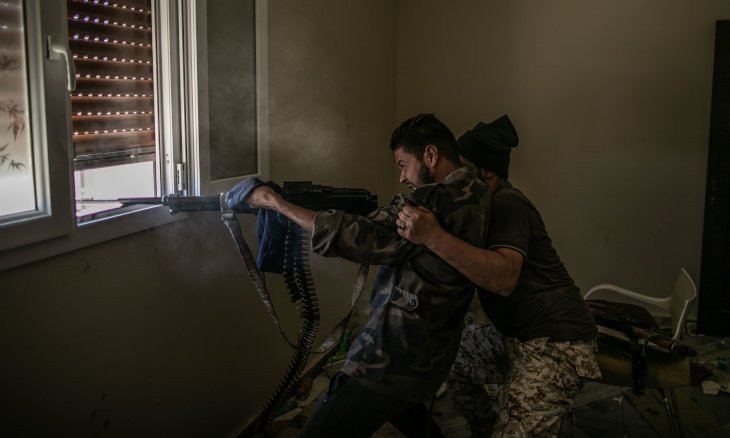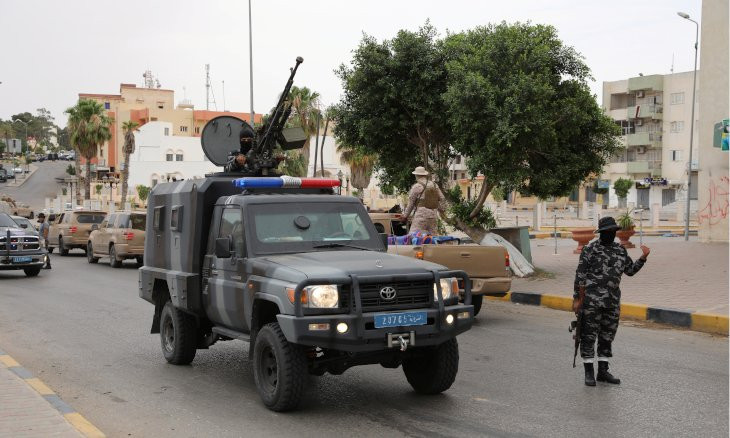Who hit the Turkish positions at the al-Wattiyah airbase in Libya?
İslam Özkan writes: Rather than dividing it, it appears that Turkey’s strategy and polarizing policies in Libya have contributed to unifying the enemy camp. Though the attack against the al-Wattiyah airbase did not inflict huge damage on Turkey’s air defense system, Turkey’s efforts in Libya will likely get harder in the future.
İslam Özkan
On the night of July 4, in an attack on the al-Wattiyah military airport 140 kilometers southwest of Libya’s capital Tripoli, air defense systems belonging to the Turkish army were targeted.
So far, no country has officially claimed responsibility for the attack. The only forces that bore the responsibility were that of Khalifa Haftar through a social media post. Still, their statement left many unconvinced. The images they used were found to that of a 2017 Egyptian Airforce attack against ISIS positions.
An interesting declaration came from the UAE academic Abdulkhaleq Abdulla, a professor of political science close to the Abu Dhabi government. Abdulla posted a Tweet confirming that the UAE had participated in the bombing of the al-Wattiyah base in Libya. The academic later deleted his Tweet. But in his now deleted Tweet, he had said: “On behalf of all honorable Arabs, the UAE has taught a lesson to the Turks.”
Another crucial source of information came from a social media account named OSINT which shares satellite analyses related to current events. This account shared satellite images regarding the bombardment conducted by unknown forces against the al-Wattiyah airbase. The account did not confirm that there had been an attack on the base. However, in another post, it said: “South West location shows signs consistent with an attack, South East instead shows much lighter signs.”
 Turkey-backed Syrian rebels 'deploy child soldiers to Libya'
Turkey-backed Syrian rebels 'deploy child soldiers to Libya'If the information provided by the site is correct, there is a possibility that the attack came from a French airbase in Chad close to the airport’s southwest region. In fact, Mediterranean and Middle East security research expert Professor Michael Tanchum told Euronews that French Mirages were based in Chad and that in February 2019, Paris had used them to bomb Chadian rebels near the Libyan border. Yet Professor Tanchum agreed with comments according to which it would be unlikely that French pilots and planes would risk shooting at Turkish targets in Libya.
If we are to pay heed to the UAE academic’s now deleted Tweet, we could assume the UAE carried out the attack. But again, we ought to bear in mind that the academic could have acted emotionally and impulsively.
It is widely known that since 2014, the Abu Dhabi administration has been conducting secret operations, especially in Libya. The UAE aircraft has carried out secret operations and bombardments in several places in Libya in order to halt the advance of opposition forces.
A few months ago, Abdul-Malik Al-Madani, the spokesman for the Burkan Al-Ghadab (Volcano of Rage) operation launched by the Government of National Accord (GNA), issued a statement on social media saying: “Last night, foreign Mirage 2009 bombed the Al-Wattiyah Air Force Base in what was a desperate and unsuccessful attempt by the supporters of the rebel Haftar. The information we received indicates that the plane is owned by Emirates, and that it exited the Egyptian Sidi Barani base.”
Who carried out the attack against al-Wattiyah airbase matters. Whether the culprit is France or the UAE will have different consequences. But in any case, the attack constitutes as significant signal flare regarding Turkey’s position in Libya and the actors positioned against the GNA.
Rather than dividing it, it appears that Turkey’s strategy and polarizing policies have contributed to unifying the enemy camp. Though the attack against the al-Wattiyah airbase did not inflict huge damage on Turkey’s air defense system, Turkey’s efforts in Libya will likely get harder in the future, now that it is facing the opposition of France, Egypt, the UAE and Saudi Arabia.
 Turkey has 'criminal responsibility' for its actions in Libya, says Macron
Turkey has 'criminal responsibility' for its actions in Libya, says Macron
